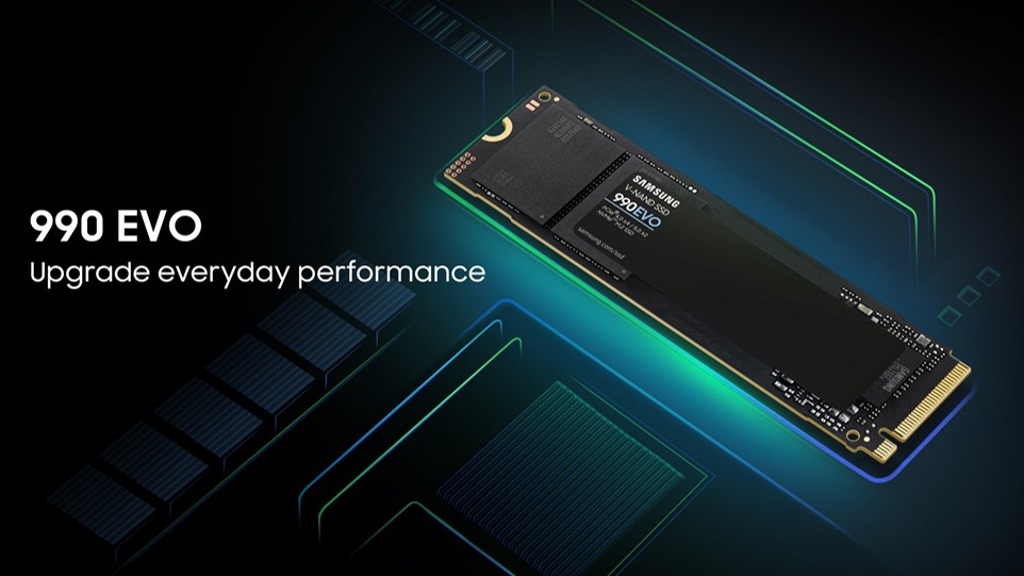Technology
Is Samsung’s Galaxy Watch skipping out on Apple’s LTPO OLED advantage?

After the Watch 10 series launch last month, the smartwatch market is buzzing with excitement for the upcoming Apple Watch 11. Reports indicate that Samsung plans to work with Apple on developing LTPO OLED technology for the new watch, while the Galaxy Watch seems to be falling behind in adopting this technology.
Apple first introduced LTPO OLED technology in its Apple Watch series with the Watch 4 and has made improvements since then. Released in 2023, the Apple Watch Ultra 2 uses LTPO2. Now, the latest LTPO3 is available in the Apple Watch 10 series.
In addition to the Apple Watch, both the Pixel Watch 2 and OPPO Watch 2 also feature LTPO displays. However, it remains uncertain whether Samsung will adopt LTPO technology for its Galaxy Watch models.

Samsung Display has been a leader in the OLED market and has previously supplied displays for Apple products, including the Apple Watch. However, Samsung is currently focusing on its Galaxy Watch line, which uses Super AMOLED displays. These displays are colorful and perform well, they don’t offer the same power savings as LTPO technology.
The Korean tech giant has been successful with this approach in the smartwatch market but it hasn’t yet adopted the new LTPO technology for its watches. Still, Samsung is expected to participate in future developments for Apple’s upcoming watch model, the Apple Watch 11 series.

Notably, LTPO stands for low-temperature polycrystalline oxide, a technology that combines oxides with low-temperature polycrystalline silicon. LTPS provides fast responses to make displays quick to react, while oxide TFTs are more energy-efficient. By blending these two technologies, LTPO helps reduce power use, which can extend battery life.
Despite plans to provide LTPO OLED to Apple, Samsung currently has no plans to apply this technology to the Galaxy Watch. This means that the Galaxy Watch will miss out on the benefits of advancements in LTPO OLED technology. Stay tuned for more updates.
Apple iPhone 17’s LTPO upgrade is double-edged sword for Samsung
Technology
Samsung’s faster, more efficient 990 EVO Plus SSD now available in the US

Samsung released 990 EVO Plus SSD in the US. The company’s latest memory products come with improved performance speeds supported by advanced PCIe 4.0 technology.
The new Samsung 990 EVO Plus SSD comes with faster transfer speeds and better power efficiency with capacities of up to 4TB. It offers boosted performance with random read and write speeds of 1,050K IOPS and 1,400K IOPS, respectively.
Thanks to PCIe 4.0 support, the 990 EVO Plus is an ideal solution for buyers seeking enhanced performance and power efficiency across gaming, business, and creative tasks.
Samsung claims the 990 EVO Plus offers sequential read speeds up to 7,250 MB/s and write speeds up to 6,300 MB/s, up to 50% faster than the previous 990 EVO.

The company brought this performance boost by 8th-gen V-NAND and a 5nm controller. Besides, a nickel-coated heat shield minimizes overheating, delivering 73% greater power efficiency.
Samsung 990 EVO Plus SSDs will have a manufacturer’s suggested retail price of $109.99 for the 1TB model, $184.99 for the 2TB model, and $344.99 for the 4TB model.
| Category | Samsung SSD 990 EVO Plus | ||
|---|---|---|---|
| Interface | PCIe Gen 4.0 x4 / 5.0 x2 NVMe 2.01 | ||
| Form Factor | M.2 (2280) | ||
| Storage Memory | Samsung V-NAND 3-bit TLC | ||
| Controller | Samsung In-house Controller | ||
| Capacity | 1TB | 2TB | 4TB |
| Sequential Read/Write Speed | Up to 7,150 MB/s, 6,300 MB/s | Up to 7,250 MB/s, 6,300 MB/s | Up to 7,250 MB/s, 6,300 MB/s |
| Random Read/Write Speed (QD32) | Up to 850K IOPS, 1,350K IOPS | Up to 1,000K IOPS, 1,350K IOPS | Up to 1,050K IOPS, 1,400K IOPS |
| Management Software | Samsung Magician Software | ||
| Data Encryption | AES 256-bit Full Disk Encryption, TCG/Opal V2.0, Encrypted Drive (IEEE1667) | ||
| Total Bytes Written | 600TB | 1200TB | 2400TB |
| Warranty | Five-year Limited Warranty | ||
Technology
Rumor: Samsung Exynos 2500 chip’s future is insecure

Samsung Exynos 2500 might not see the light of the day. Amid Exynos cancellation in the Galaxy S25, a new rumor suggests that Samsung might not use the Exynos 2500 in the Galaxy Z Flip 7 or the Galaxy S25 FE.
According to Korean media (via @chunvn8888/X), Samsung canceled Exynos 2500 plans for the Galaxy Z Flip 7. Following the reports of low yield, it was assumed that the company would utilize the chipset in the next Flip smartphone.
The current situation is that the Exynos 2500 will end up staying in Samsung’s test lab. The chipset could not be commercialized due to significant performance differences from its Snapdragon counterpart and low yield rates.
At the launch Tech Forum, Samsung announced the next Exynos i.e. Exynos 2500 will be manufactured on its cutting-edge 3nm process node. TSMC is manufacturing 3nm Snapdragon 8 Elite, but Samsung Foundry failed.
It is reported that Samsung Foundry’s 3nm yield rate is about 20 to 30%. The company is trying to improve the yield rate to commence mass production of Exynos 2500. Meanwhile, things are not in favor, leading to a complete failure.
Samsung didn’t launch the Exynos 2300 for Galaxy devices. This followed the criticism it faced over throttling and overheating concerns with Exynos 2200 in the Galaxy S23 series. However, the Galaxy S24 and S24 Plus ship with Exynos 2400.
At the recent earnings call, the company’s top leadership apologized for the growth crisis. The mobile division is doing a great job despite the immense competition, but, the biggest growth engine; the semiconductor business, continues to decline.
Technology
Samsung will produce 2nm AI CPU chip for Rebellions

Samsung inked deal with Korea’s Rebellions to produce 2nm AI CPU chip. The chip design startup recently announced its partnership with ARM, Samsung Elec, and ADTechnology.
KEDGlobal reports that Rebellions collaborating with ADTechnology, ARM, and Samsung for 2nm AI chips. This multi-firm partnership is expected to utilize Samsung’s cutting-edge 2nm process.
Rebellions will integrate its AI accelerator, REBEL, with ADTechnology’s compute chiplet powered by ARM Neoverse Compute Subsystems (CSS) V3 technology.
ADTechnology will design and implement the chiplet using Samsung’s cutting-edge 2nm process node and ensure the production of high-quality chips at a sufficient yield rate.
The partnership is aimed at developing a new AI central processing unit chiplet. The companies aim to enhance AI computing capabilities for clients and consumers.
The product is expected to set a new standard for a scalable and efficient silicon solution that combines Rebellions’ expertise in chip design levering on ARM, Samsung, and ADTechnology.












